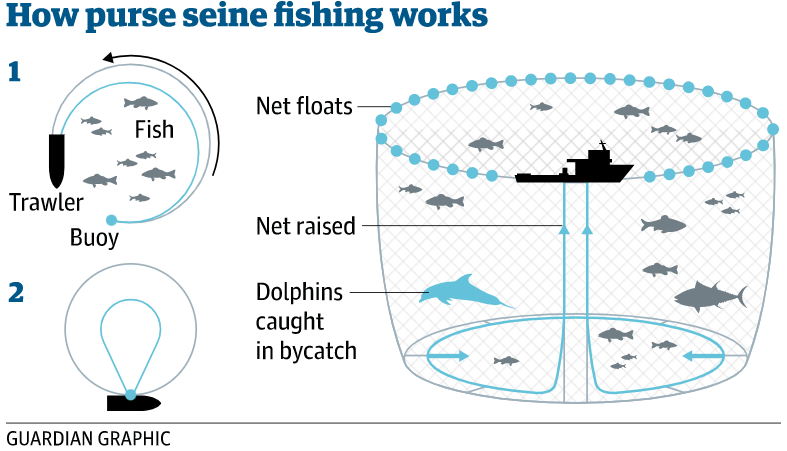18 Feb Deep Sea Fishing and its effects
Deep Sea Fishing and its effects
Deep sea fishing refers to fishing activities that take place in the open ocean, beyond the continental shelf.
Main types of deep sea fishing
Deep sea fishing is a type of fishing that takes place in open water, usually far from the shore. Here are some common methods used in deep-sea fishing:
- Trolling: This is a technique in which a lure or bait is drawn through the water behind a moving boat. The lure is designed to attract fish to bite.
- Bottom fishing: This is a technique in which the bait is dropped to the bottom of the sea. The bait can be left on the bottom or lifted slightly off the bottom to attract fish.
- Jigging: This is a technique in which a weighted lure is dropped to the bottom of the sea and then lifted and lowered to attract fish.
- Drifting: This is a technique in which the boat is allowed to drift along with the current while bait is deployed. The bait can be on the surface or suspended at a depth to attract fish.
- Chumming: This is a technique in which fish bait is scattered over the water to attract fish.
- Deep dropping: This is a technique in which the bait is dropped to the bottom of the sea, usually in depths of several hundred meters, to catch deep-sea species

Deep Sea Fishing
This type of fishing comes with a range of issues and challenges, some of which include
- Overfishing: One of the biggest issues with deep-sea fishing is overfishing. Many species of fish are being caught at a rate faster than they can reproduce, leading to a decline in their populations. This can have a significant impact on marine ecosystems and can lead to the collapse of fish populations.
- Bycatch: Deep sea fishing often results in the unintentional capture of non-target species, known as bycatch. This can include marine mammals, seabirds, and other fish species, many of which are endangered or threatened.
- Habitat destruction: Deep-sea fishing practices can cause significant damage to the seafloor and the habitats of deep-sea species. Bottom trawling, for example, involves dragging heavy nets along the seafloor, which can destroy coral reefs and other important habitats.
- Illegal, unreported, and unregulated fishing: Deep sea fishing is often carried out by vessels that operate outside of national and international fishing regulations. This can lead to overfishing and other unsustainable practices, as well as illegal trade in fish and seafood products.
- Climate change: Climate change is having a significant impact on the oceans and the marine species that inhabit them. Increasing ocean temperatures and acidification can impact the survival of fish and other sea creatures, leading to declines in fish populations and the need to adapt fishing practices to new conditions.
- Technological limitations: Fishing in deep waters can be technically challenging and expensive. The lack of suitable technology and equipment can make it difficult for fishers to access deep-sea fish populations, which can limit the potential for sustainable fishing practices.
Addressing these issues and challenges requires a comprehensive approach that involves better regulation, improved monitoring and surveillance, and the adoption of sustainable fishing practices that prioritize the long-term health of the ocean and its inhabitants.
The recent judgment of the supreme court
The Exclusive Economic Zone (EEZ) of Tamil Nadu (200 nautical miles) and outside territorial seas (12 nautical miles), subject to certain limits, have been approved for fishing by the Supreme Court of India. The supreme court has also given permission to use the purse seine method of fishing. The Tamil Nadu government had banned the purse seine method of fishing earlier.
A purse seine is formed of a long wall of netting that is framed by floating and leadline and has purse rings hanging from the bottom of the gear. A purse line made of steel wire or rope passes through the purse rings and allows the net to be pulled through.
Source:
Daily Current Affairs for UPSC
PLUTUS IAS CURRENT AFFAIRS 18th FEB 2023
The topic described above is related to Daily Current affairs for the UPSC examination. The article reflects on How deep-sea fishing impacts Indian Economy. Get such kinds of the best current affairs for the UPSC examination free of cost from Plutus IAS. Also, Read weekly and Monthly Current Affairs IAS exam Preparation.




No Comments